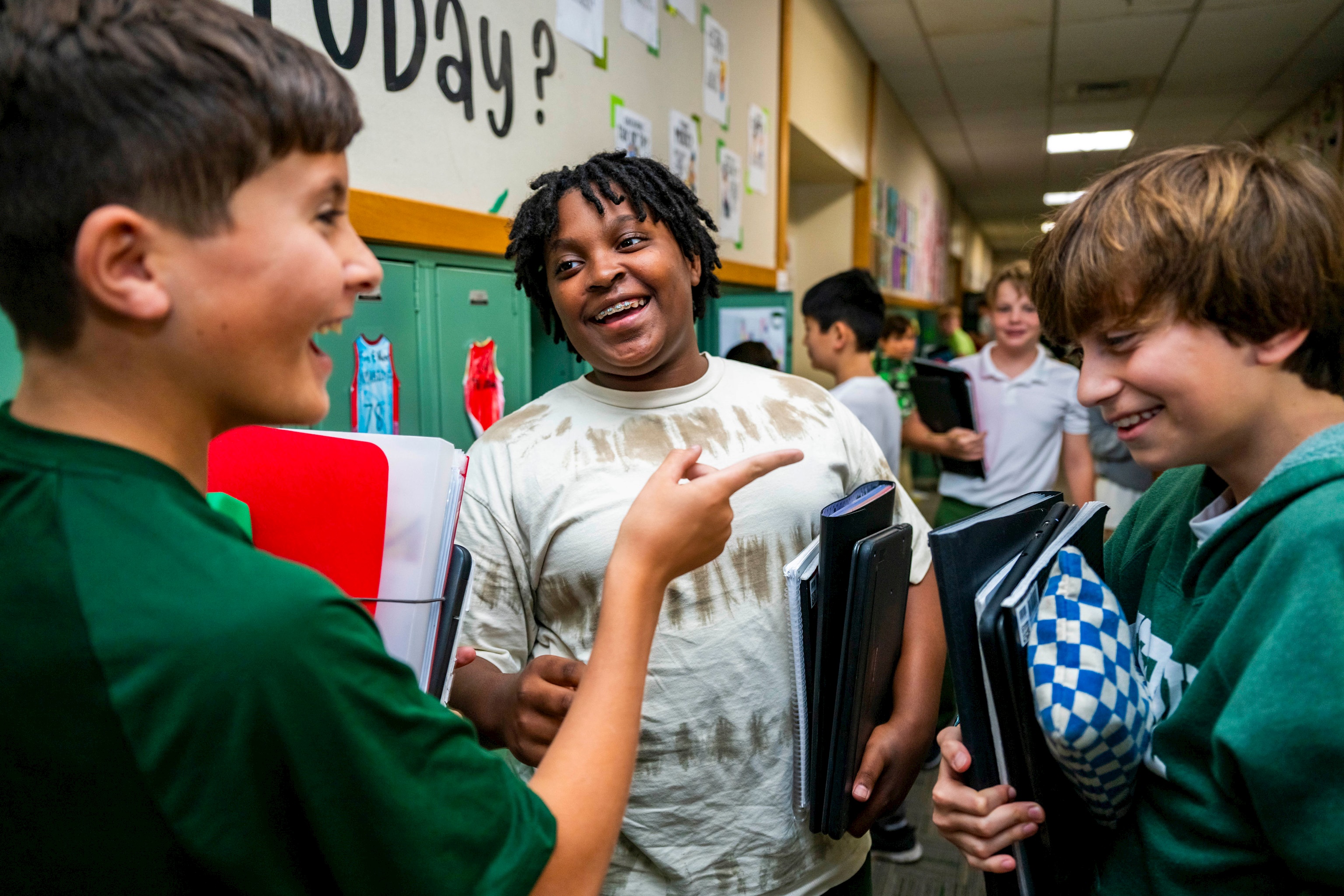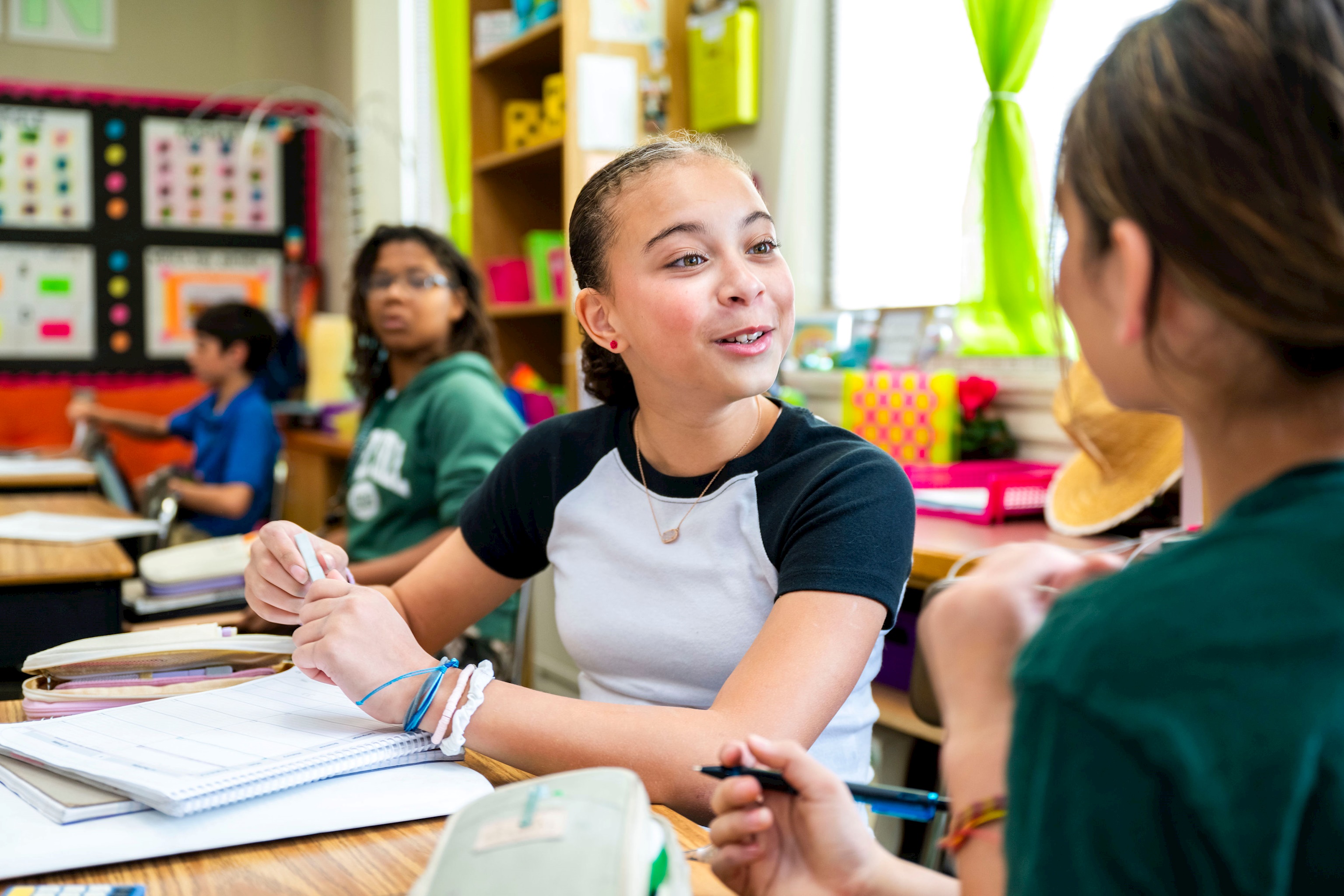
By Tim Weymouth, Head of Middle School
“We make a living by what we get, but we make a life by what we give,” –Winston Churchill
Though it can take some effort, living by the Golden Rule-“Do unto others as you would have them do unto you,”-seems scarce in the modern age. Kindness can be so fragile. In recent years, it seems like the media (and social media in particular) have desensitized us to rude behavior.
At Tower Hill, character education is alive and well as we model and grow the practice of kindness and greater civility. Preparing students for work and life as kind, empathetic citizens is a crucial part of our role as faculty and staff here at Tower Hill.
In The War for Kindness: Building Empathy in a Fractured World, author Jamil Zaki shares cutting-edge research, including work in his own lab, showing how we are not born with empathy. With deliberate practice, Zaki assures we can grow the power of personal empathy and, in turn, benefit our community. This practice might include regular mental “workouts” and training to strengthen our kindness. This would happen, for example, through giving oneself grace, reframing disagreements with others or rewarding kindness you see around you.
So how can a school reinforce kindness in its own culture to benefit the greater good? Tower Hill has included character education in its curriculum since its founding in 1919.
Programmatically, the Middle School has clear goals to grow compassion among students. During these pivotal years, a child can fall into a self-serving path, losing empathy for those around them.
Our faculty use a kudos system, typically awarded to students for:
- Exemplary classroom conduct;
- Specific acts of kindness toward their peers;
- Outstanding contribution to a class or classroom activity;
- Exceptional leadership in athletics;
- Support of another student; and,
- Excellent sportsmanship.
When a child’s act of kindness merits a kudo, an email goes out to the entire Middle School faculty and the good citizen’s family, drawing positive attention to acts of selflessness. Monthly, we have each good citizen stand and be recognized in our full Middle School assemblies. We are also exploring ways to bring kudos into the friendly competition of Greens vs. Whites to reward those who have shown especially selfless behavior each week.
In terms of our academic curricula, kindness is taught in a variety of areas. We nurture each student’s innate curiosity and expand their own perspectives about civility. Philosophically, we aim to be unbiased and have children build positive morality on their own terms. Every day begins with homeroom time when a teacher sees their advisees and can check in individually with anyone who needs help. The advisee group discusses topics relevant within school or in the greater world in terms of character education. Fifth and sixth grades also have small group classes with Dr. Lineback, one of our staff psychologists, to discuss nurturing empathy. Civil dialogue develops as a skill in English and history classes as we consider perspectives of each other as much as the people in the curricula. Additionally, Community Conversations offer times when we promote the merits of having a diversity of opinions and how to improve a positive community mindset. In seventh grade we have our unique disABILITIES program that grows compassion by leaps and bounds as the students explore physical and intellectual differences. Empathy is taught and learned here.
“I have been so proud to be a faculty member in this division because the teachers are hardwired to work with students whose brains and bodies are changing at a rapid pace. In Middle School, my children learned empathy, which, honestly, is something my husband and I cared most about during this time in their lives. Their teachers modeled what it meant to be responsible and respectful, and our children digested it and began to display an emotional intelligence as they reached eighth grade that certainly warmed our hearts.” —Jill Zehner P’20, ’22, ’24 and former teacher

Beyond our walls, we contend with the digital world where social media and impersonal, electronic communications can dilute kindness. Digital technology can be a spectacular aid for both personal and group growth, but like all middle schoolers in this age, it can often breed negativity, harshness and even cruelty. We discuss this within classes, at grade levels and among the whole school division. We understand that without positivity, support and trust online, we are left with degraded mental health. To help, we identify issues, explore solutions and eventually restore relationships. Managing discipline is particularly tricky when students are unkind in the murky online world, but we do not shy away from these challenges. This continues to be crucial for the school-home partnership as well. Everyone needs to continue to nurture kindness as part of a child’s “digital hygiene!”
Strategically, Tower Hill’s plan is to center social-emotional learning as a priority of our engaged community. I like to imagine we are helping each student build their own metaphorical moral compass as part of this. We start with the outer casing—building good citizens—and put in mechanisms that drive a community mindset, like responsibility for self and others, mutual respect and, of course, kindness. These inner workings are all a part of our student-driven Middle School Character Code of Conduct, signed by each student and faculty member at the beginning of each year.
With a well-oiled moral compass guiding us to civility, we know we can “make a life by what we give.”






